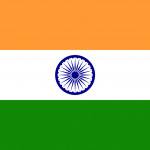 As India is witnessing wastage of at least 50 per cent of vaccines stocked by various healthcare agencies owing to heat exposure, the Central Drugs Standard Control Organisation (CDSO) has decided to explore the idea of developing thermostable vaccines.
As India is witnessing wastage of at least 50 per cent of vaccines stocked by various healthcare agencies owing to heat exposure, the Central Drugs Standard Control Organisation (CDSO) has decided to explore the idea of developing thermostable vaccines.
According to experts, such vaccines will be ideal for a country like India where vaccine distribution takes several months.
“We are examining a proposal made by Hilleman Laboratories, a global vaccine research and development organisation. According to them, vaccines could be stored completely without the help of cold chain, all the way from manufacturers to vaccination fields,” said Dr G.N. Singh, Drug Controller General of India (DCGI).
“The research is going on. If everything goes well and the technology proves that it has a potential to curb vaccine wastage, we will support the technology and implement it,” he said.
In 2014, research and development of thermostable formulations of oral rotavirus vaccine were initiated, which offered longer stability of the vaccine even in varying temperatures across diverse environmental conditions.
“With the help of dry powder technology, it will be possible for us to engineer formulations that can demonstrate many months of stability under ambient temperatures. Vaccines have a delicate composition and their potency can be preserved only between 2 and 8 degree Celsius. Hence, vaccine thermostability means safeguarding the potency of a vaccine. We have initiated research and development of thermostable formulations of oral rotavirus vaccine, which offered stability for a longer duration even as temperatures fluctuated in different weather conditions,” said Dr Davinder Gill, CEO of Hilleman Lab.
“India is the world’s largest manufacturer of vaccines, but it is sad that the country has the largest number of un-immunised children as close to seven million. The current state of immunisation here is quite heterogeneous, with different states having achieved varying levels of protection through vaccination. The country needs a consistent access to technology which can help immunise children against fatal diseases,” he said.
Source: MailOnline India

















